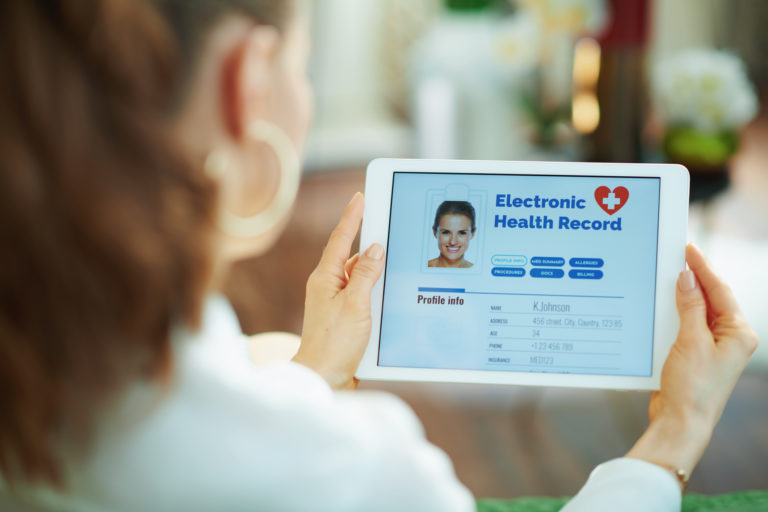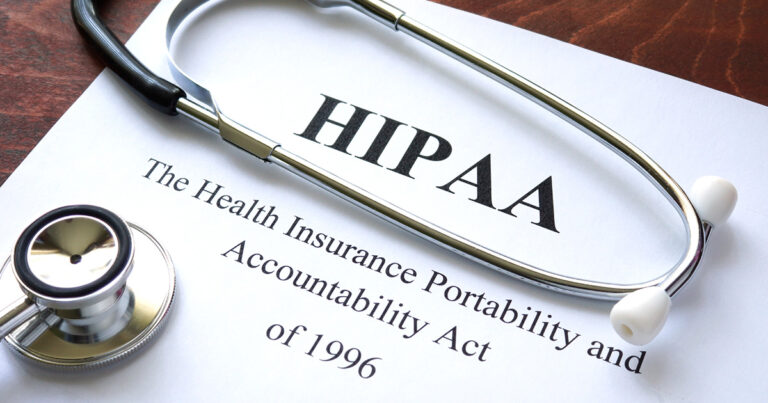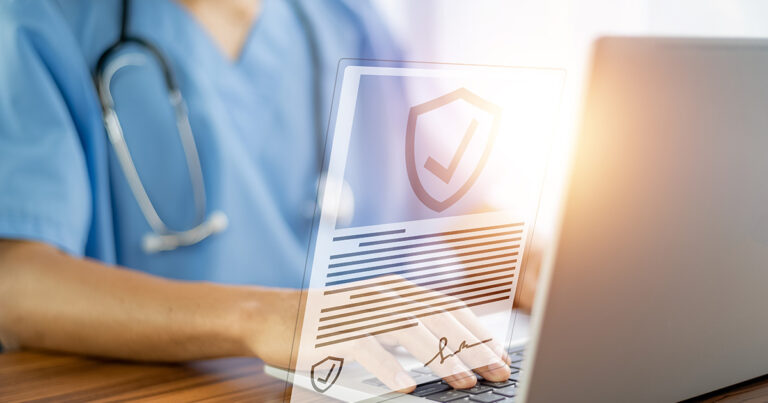How Concerned Are Patients About Privacy?
Let’s cut right to it; we’re not going to make you wait through reading this entire article before we give you an answer to the title question.
How concerned are patients about privacy? Very.
We talk a lot about the benefits of living in today’s digital world, especially as it relates to healthcare. Technology affords you access to your medical history and gives you the opportunity to do your own research when it comes to your personal health.
It also connects your multiple healthcare providers, allowing you to have a more holistic care experience—whether you are on a regular path of annual checkups, or struggle with a condition that requires special attention.
However, just like many other aspects of our daily life, digital healthcare information also makes us—and our personal information—vulnerable to data breaches.
Breaches
Unfortunately, data breaches happen all the time. It doesn’t necessarily mean that your most sensitive information (your Social Security number, credit card information, medical records, etc.) has been hacked—but it can.
IdentityForce, which provides identity protection, recently rounded up some companies that were targeted in July of this year. They include retailers, healthcare organizations, and even classified government sectors.
But, why do these breaches of security even happen? What do hackers have to gain?
These have been questions that have been lurking for a long time, and the answers can vary.

Some brainiac hackers do it for the challenge. Some are actually looking for monetary gain (hence the cracking into banking data). Others may be associated with or hired for a particular political or corporate agenda. And the rest? They could very well be trying to catch holes in digital systems before someone else (with more malicious intent) does.
That’s why many companies that deal with a person’s sensitive information are now taking as much caution as possible when it comes to digital security—as they rightfully should.
Patient Concerns
Now that we’ve put you into a state of frenzy where you want to cancel your credit cards and use a locked filing cabinet system to hold your medical and personal data, let us tell you that you are not alone in your reaction.
According to the HIPAA Journal, a recent study conducted by Aetna took a dive into consumers’ opinions on all things healthcare, and had some pretty interesting findings.
While the rising cost of healthcare is a constant concern, there was another issue that clocked in as the biggest concern of all. Yep, you guessed it: patient privacy.
As the HIPPA Journal relays, “80% rated patient privacy as very important, 76% of consumers rated data security as very important, and 73% rated the cost of healthcare as very important. Patient privacy was more important to women (84%) than men (71%). Women were also more concerned than men about data security (80%/66%).”
It’s clear that with the adoption of electronic health records (EHRs), patients are worried that their personal information is more vulnerable than ever before.
Benefits of EHRs
So, why don’t we just go back to old school, paper medical records? That would solve this whole patient privacy problem, right?
Not so fast.
First of all, sensitive patient information can be at risk of being exposed whether or not it’s in a digital format. That’s why HIPAA has strict regulations when it comes to protecting a patient’s identifying information. In fact, we covered that in our last post: Is Your Practice Making These Common HIPAA Mistakes?
Plus, as we touched on in the beginning of this article, there are numerous advantages of switching patient files to an electronic system.
It makes health information easy to share (with the right people), helps practitioners catch potential issues with treatment and medications, and can put the patient in the driver’s seat of their own healthcare experience.
In addition, if healthcare practices are taking the steps necessary to secure EHRs, digital data can actually be even safer than in a paper file. Think about it: with passwords, protected networks, and authorized users, you can create the necessary roadblocks to keep prying eyes away from sensitive information.
The key is to be diligent in your data security methods. So, as a practitioner, what can you do?
How to Keep Information Safe
Of course, since EHRs are now the norm when it comes to healthcare, HIPAA has taken necessary measures to include digital communication in its regulations.
And, in the black hole of the Word Wide Web, there are many precautions you can take to help keep your practice—and your patients’ files—protected against hackers.
Making sure your practice uses a secure platform is key, and you should limit access to only those who require it. This means using password-protected logins and multi-factor authentication.
In addition, you should be enlisting the help of data controls to flag unusual or malicious activity. These controls can block actions in real time, or send alerts when it suspects that sensitive data is being improperly shared or exported.
It’s also good practice for healthcare providers to use data encryption. This makes it difficult for attackers to decipher patient information and can help keep data safe when sharing digitally, such as through email.

Plus, with the increase in mobile device usage in all industries—including healthcare—it’s important to safeguard against hacks by securing both networks and the devices themselves using passwords, configurations, and remote lock.
And, just like with physical patient files, educating your staff on the do’s and don’ts of patient privacy is critical for any practice. Though regular training is required, you can also check out this HIPAA Survival Guide for a good refresher.
Healthcare Partners
Of course, your patients’ data is likely not just being shared within your practice. You probably also have laboratory, referral, or vendor partners you use to help diagnose and treat your patients.
In this case, it’s important to get to know your partners’ data security practices to ensure that they are not just adequate and HIPAA-compliant, but that they go above and beyond (like yours) to protect patient data.
That’s why at IntakeQ we take data security very seriously. As an electronic intake form company, we make it easier for your patients to fill out necessary “paperwork” ahead of appointments to reduce both wait time and your staff time since information has already been gathered and digitally filed. But, we also understand that this can potentially make sensitive patient information even more vulnerable.
IntakeQ takes every step possible to ensure safekeeping. Not only is our intake form platform HIPAA-compliant, but our optional, secure messaging portal is as well. This allows you to send, complete, share notes, and exchange messages knowing that your patient’s information isn’t going to be compromised.
Want to know more about our data security practices? Just ask us!
Free download: Answers to patients privacy concerns.
The Bottom Line
Electronic health records and forms allow you and your fellow healthcare practitioners to give the best, most informed care possible.
However, to ease growing fears of data security in a breach-heavy world, it’s important to take all the necessary measures to ensure that information is kept safe and secure.
By educating your staff, enlisting the proper platforms and malware, and partnering with others who also hold patient privacy in the highest regard, you can feel confident that your patients’ data is protected.





